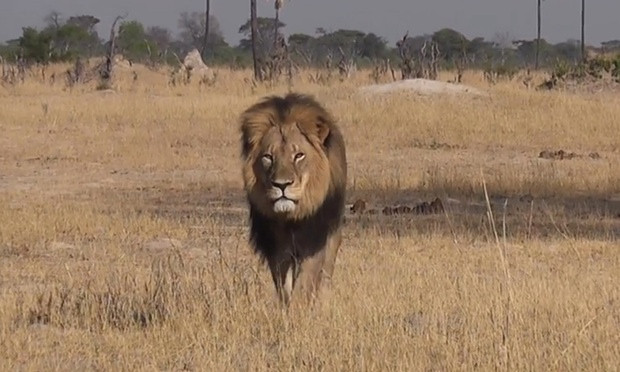Mankind's wickedly efficient killing technology has made us 'super predators'

Our "wickedly efficient" killing technology has meant that as a species we have become super predators, scientists have said. Humans kill off fish populations 14 times faster than their own marine predators, while we kill large land carnivores such as bears and lions at nine times the rate they do each other, according to a study published in the journal Science.
Chris Darimont, Hakai-Raincoast professor at the University of Victoria and science director at Raincoast Conservation, and his team compared human predation with non-human predation in a survey of 2,125 species around the world in marine and land environments.
Humans are also set apart from other predators because we tend to target and kill adult prey rather than young. But killing adults in their reproductive prime could have serious implications for ecosystems, food webs and extinction risk, the scientists say. Historically, humans are thought to have preyed on larger, adult animals as this was more energy efficient, obtaining more meat from fewer kills. Anthropologists also suggest it was a way to signal a male's competitive ability – bringing home large and dangerous prey could have signalled strength and placed them high up the pecking order for resources.
But our killing techniques have advanced significantly since prehistoric times, making us an extremely dangerous species. Darimont said: "Our wickedly efficient killing technology, global economic systems and resource management that prioritise short-term benefits to humanity have given rise to the human super predator. Our impacts are as extreme as our behaviour and the planet bears the burden of our predatory dominance."

Speaking to IBTimes UK, he added: "The magnitude of the differences in behaviour between humans and non-human predators was surprising. When set in context of predator-prey relationships over millions of years and how vastly different humans behave, however, we should have predicted such extreme differences. Simply put, non-human predators focus their targets on juvenile prey because adults are too large, fast, well-armed and experienced for many predators to kill. These limitations generally do not apply to technologically-advanced predators like humans - few prey are too large, dangerous or fast to escape our efforts."
As a result of our super predation, humans are having huge impacts on wildlife, altering traits such as species size, modifying their reproductive potential and transforming food webs across the globe. The scientists warn that urgent action is needed to place limits on human hunting activities so that they become more closely aligned with the behaviour of natural predators.
Darimont said the biggest concern raised by the findings was that because large carnivores have not evolved as prey, they lack the characteristics to be resilient to such high levels of hunting "Most cannot reproduce quickly, and they face other stressors too, like habitat destruction and declines in prey."
However, he also said that a shift towards sustainable hunting was already beginning to happen, while the case of Cecil the Lion has raised awareness of the problem of trophy hunting: "The global outrage over Cecil the Lion signals to me that the social licence for trophy hunting of carnivores might be endangered, which would be a good thing for endangered animals. Society is realising that killing to put food on the table is one thing; killing for trophy - because large carnivores are not edible - is quickly losing support and facing growing opposition."
© Copyright IBTimes 2025. All rights reserved.






















